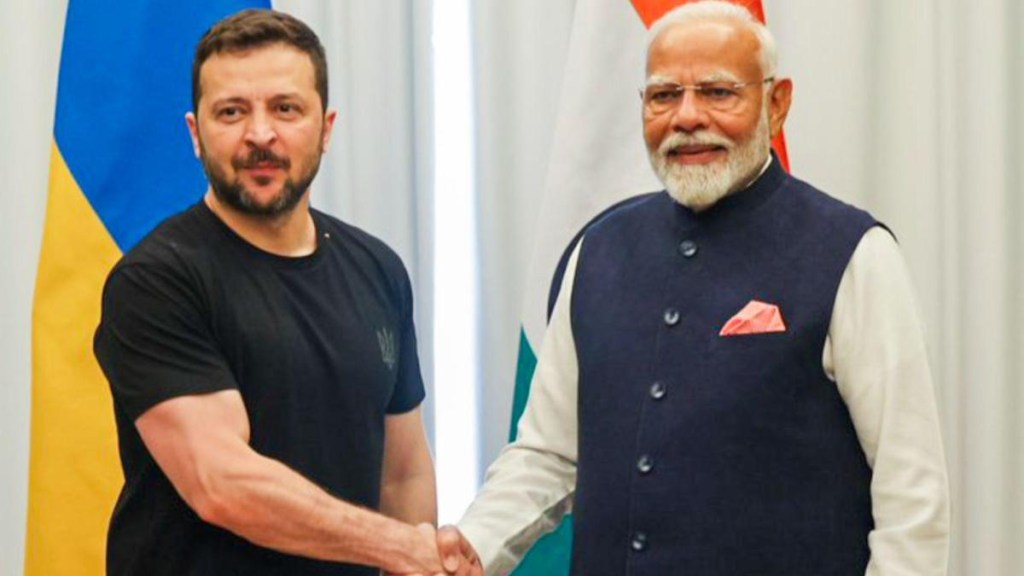By Rajan Kumar and Rohan
Prime Minister Modi’s proposed visit to Kyiv has generated widespread global interest. The West might frame it as a diplomatic success where it steered a prominent Global South country to adopt a more balanced policy. In contrast, Moscow will interpret it as an outcome of American pressure, seeking to drive a deep wedge between the two friendly states.
New Delhi planned this visit to underline its neutrality and project India as a pursuer of global peace. Ukraine figures low in India’s priorities, and no Indian prime minister has visited it since its independence in 1991. However, after Modi visited Moscow last month, it became necessary for India’s diplomacy to strike a balance and do something spectacular. Hence, New Delhi announced Modi’s visit to Ukraine and Poland, two key adversaries of Russia in the ongoing conflict.
However, the timing of his visit, as in the case of his earlier visit to Russia, is inappropriate. It is happening at a time when the Ukrainian army has occupied the Russian city of Kursk, a fierce battle is on, and Russia is under immense pressure to push the Ukrainian army back. Putin is facing criticism because Russian territory has not been captured ever since the end of World War II. Modi’s visit to Kyiv is bound to raise serious concerns in Moscow.
New Delhi has usually been cautious in its dealings with Russia. It has avoided being overtly critical even when it did not agree with Russia’s policy. Officially, India has not condemned Russia’s aggression, nor has it voted against the latter in the United Nations. The liberal Western media and its copycats elsewhere often overhyped mild statements such as ‘this is not the time of war’ or ‘sovereignty of a state should be respected’ as postures against Russia. However, India retained strong military, economic and multilateral ties with Russia. It did not join the Western sanctions on Russia. In informal meetings, India continued to articulate its concerns over the war, but it avoided direct criticism of Russia.
New Delhi views the Russia-Ukraine war essentially as a European war in which two sides are trying to settle their post-Cold War grievances. It blames both sides for misunderstanding, lack of trust and the onset of war. Its main concerns are economic and humanitarian. It worries that the price of energy and food will continue to rise if the war continues. The benefits of a few billion dollars from the import of cheap Russian oil cannot compensate for the heavy price it pays for its other imports and rising global inflation. Further, it worries that the West’s short-sighted policy has pushed Russia closer to China.
Modi’s visit to Kyiv would widely be seen as a balancing act. Since he visited Moscow right after assuming his office and embraced Putin when NATO was celebrating its anniversary in Washington, it became necessary for India to restore balance. New Delhi cannot be seen tilting towards Russia when it works so closely with the US in the Indo-Pacific. One is not sure, but the policymakers might have considered the swift rise of Kamala Harris in US politics also as a factor in making such a decision.
The details of Modi’s visit have not been officially outlined, but it is possible that diplomats would present it as an exercise in peacebuilding. New Delhi might push the narrative of India as a bridge between the warring parties, and between the West and the Global South. To be sure, New Delhi occupies a favourable position to undertake such an exercise, but it would require immense diplomatic resources, risk-taking behaviour and political commitment. It has not performed such a role in the post-Cold War period. It might have to depart from its erstwhile diplomatic equidistance strategy and policy of non-intervention in sovereign affairs. It must also be ready for reciprocal behaviour from other countries in its conflicts.
India has avoided offering peace proposals like China or providing a platform like Turkey or Switzerland. Nor did it ever actively try to bring the parties together. India did not invite Ukraine to its G20 meeting. Therefore, it is unclear how India might try to bring the parties together. However, it might underline its stance that ‘the sovereignty of each state should be respected’ and that a nuclear state should not threaten a non-nuclear state with its deadly bombs. It can also announce humanitarian assistance to Ukraine. However, overall, the political atmosphere is not very conducive to a dialogue at this point.
Therefore, New Delhi should not have too many expectations from the visit. Neither the West nor Russia appears to be in the mood to relent. The US has made no attempt to initiate ceasefire talks the way it did for Israel-Gaza, for instance. The route to the ceasefire runs through Washington and Moscow.
About the authors
(About the authors: Rajan Kumar teaches at the School of International Studies, Jawaharlal Nehru University; Rohan specialises in Russian history and taught at Delhi University.)
(Disclaimer: Views expressed are personal and do not reflect the official position or policy of FinancialExpress.com Reproducing this content without permission is prohibited.)

